AMD vs Intel: which chipmaker does processors better?
The battle between AMD and Intel rages on
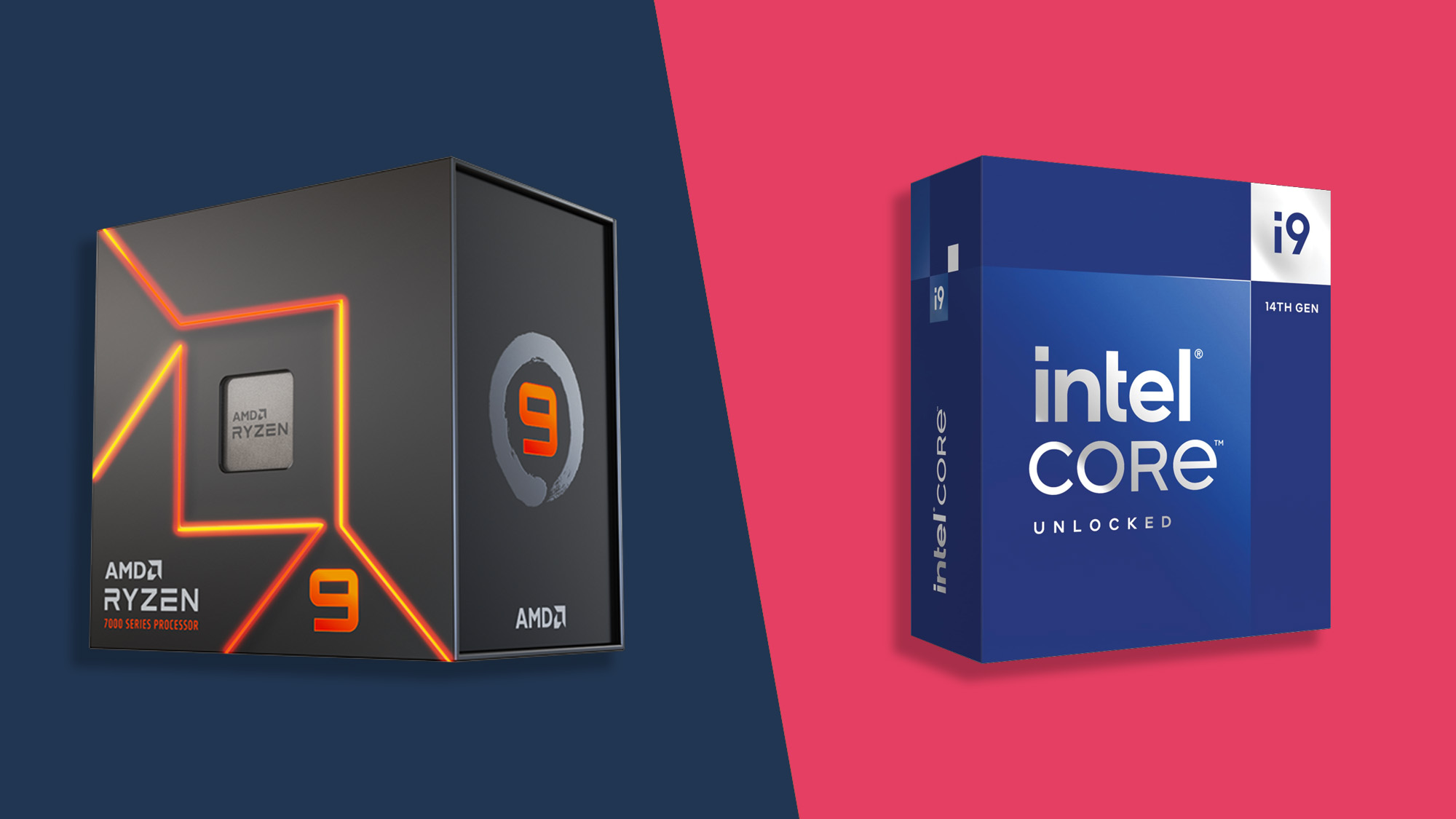
If you're planning on building a new or upgrading an existing PC then you'll need to choose between AMD vs Intel. The two chipset manufacturers have been at each other's throats for decades as the leaders of the two-horse race for desktop processors. I'll also compare the current-generation options, contrast upcoming releases, and evaluate the hardware based on their respective price and performance.
Both AMD and Intel have made some of the best processors on the market, which is unlikely to change soon. We've seen huge advancements in tech in recent years, from Team Blue adopting hybrid architecture to implementing AI-powered chips on mobile to adopting the LGA 1851 socket and disaggregated architecture on the horizon.
Team Red has been busy as well, with the soon-to-be-released AMD Ryzen 9000 line attempting to steal the thunder from last year's Raptor Lake refresh which didn't quite make the splash Intel had hoped for.
Your choice of processor will also inform which of the best motherboards is at the heart of the machine. AMD tends to stick with its sockets for longer than Intel, as AM5 replaces the long-standing AM4. Meanwhile, Intel has supported LGA 1700 for over three years (and three processor generations) with the tune soon to change before the year is out. There's a lot to read up on so this is everything you need to know about AMD vs Intel in 2024.
AMD vs Intel: price
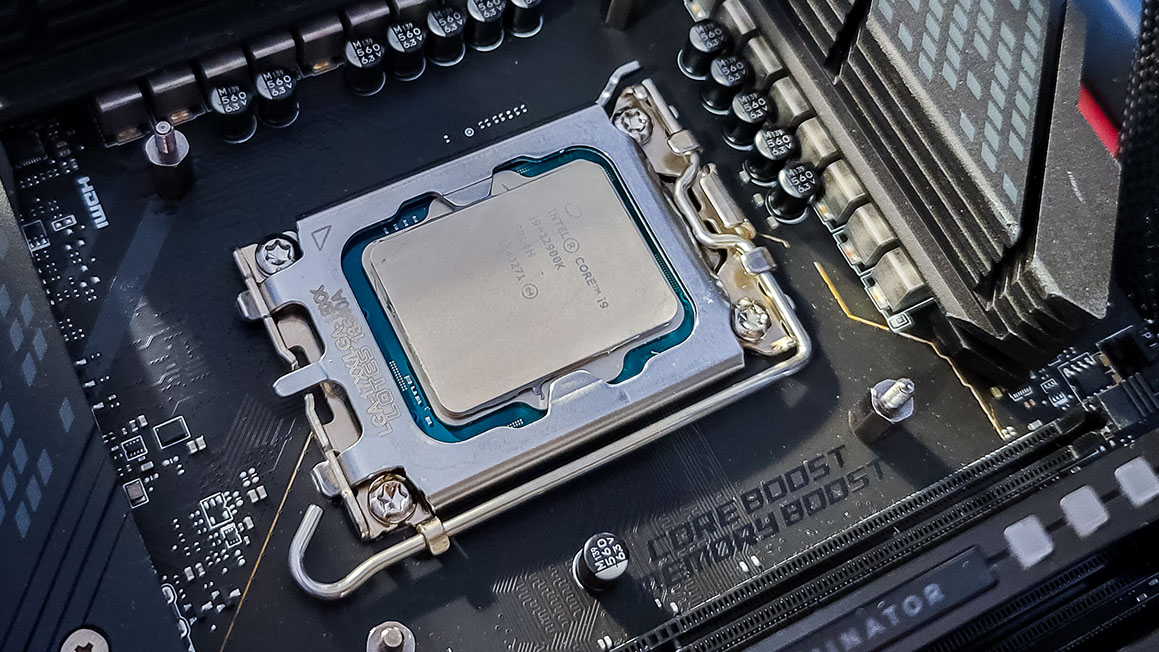
Both AMD and Intel have entry-level, mid-range, and high-end configurations from within their respective processor generations. For gamers and creatives, prices start from $299 / £265 / AU$460 at MSRP for the likes of the AMD Ryzen 5 7600X and $319 / £255 / AU$465 for the Intel Core i5-14600K.
Historically, AMD has been a little cheaper at the budget end of the pricing spectrum, as can be observed from the pricing of the previous-generation AMD Ryzen 5 3600X at $239 / £239 / AU$389 against the older Intel Core i5-13600K for $329 / £280 / AU$475). If price is paramount for you then Team Red may be the one to side with here.
The gap is closer with the mid-range current-generation offerings from both chipset makers. The AMD Ryzen 7 7700X arrived for $399 / £340 / AU$575 against the Intel Core i7-14700K for $409 / £325 / AU$595 for a near-identical price depending on where you are in the world.
Sign up for breaking news, reviews, opinion, top tech deals, and more.
It's with the enthusiast options, such as the Ryzen 9 7950X3D and Intel Core i9-14900K, that the script gets flipped. Intel's flagship surfaced for $589 / £470 /AU$855 against AMD's leading chip at $699 / £649 / AU$1,139. While AMD may be cheaper at the budget end, and the two companies are neck-and-neck for mid-range, those on the bleeding edge can save a chunk of change siding with Intel.
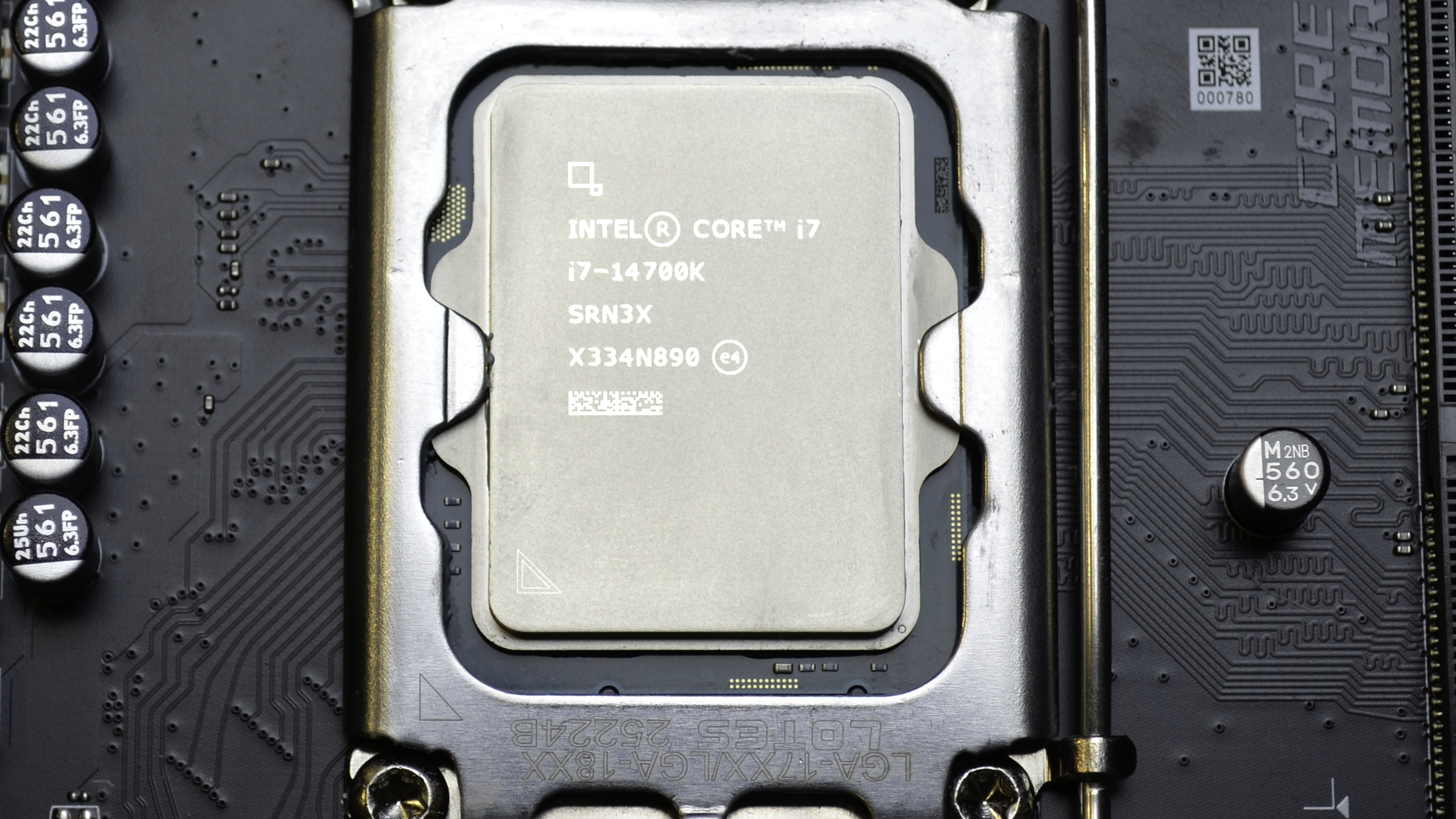
With the AMD Ryzen 9000 series on the horizon, and the pricing expected to stay consistent with its AM5 and AM4 predecessors, we aren't expecting this dynamic to change any time soon.
They were supposed to hit shelves on July 31 but were delayed. The Ryzen 5 9600X and mid-range Ryzen 7 9700X will be coming on August 8 with the latter two models releasing in the middle of the month.
If you're considering upgrading to AM5, we recommend waiting until these new chips hit the scene for the expected generational performance improvements.
Intel has since shifted gears towards the upcoming Arrow Lake processor line which is expected by the end of the year. Team Blue has moved away from the hybrid architecture of Alder Lake and Raptor Lake for the past three years, and will instead be bringing its disaggregated architecture to desktop.
It was previously only available in laptops via Meteor Lake (Intel Core Ultra 100), and no pricing has been officially unveiled yet. We are hopeful rates will be consistent with the older Intel Core i5, i7, and i9 chips as the manufacturer debuts Ultra 5, 7, and 9 for socket LGA 1851.
There's more to it when pricing up a processor to be aware of, though. If you invest in an AMD AM5 chip, either the Ryzen 7000 or 9000 series, you'll need a stick or two of the best DDR5 RAM as Team Red's latest processors no longer support DDR4.
In contrast, Intel's most recent hardware still has support for the slower, older (and vastly cheaper) memory tech. Some AM5 motherboards may be more expensive than LGA 1700 equivalents as well, so that's something to also factor into your purchasing decision.
AMD vs Intel: performance
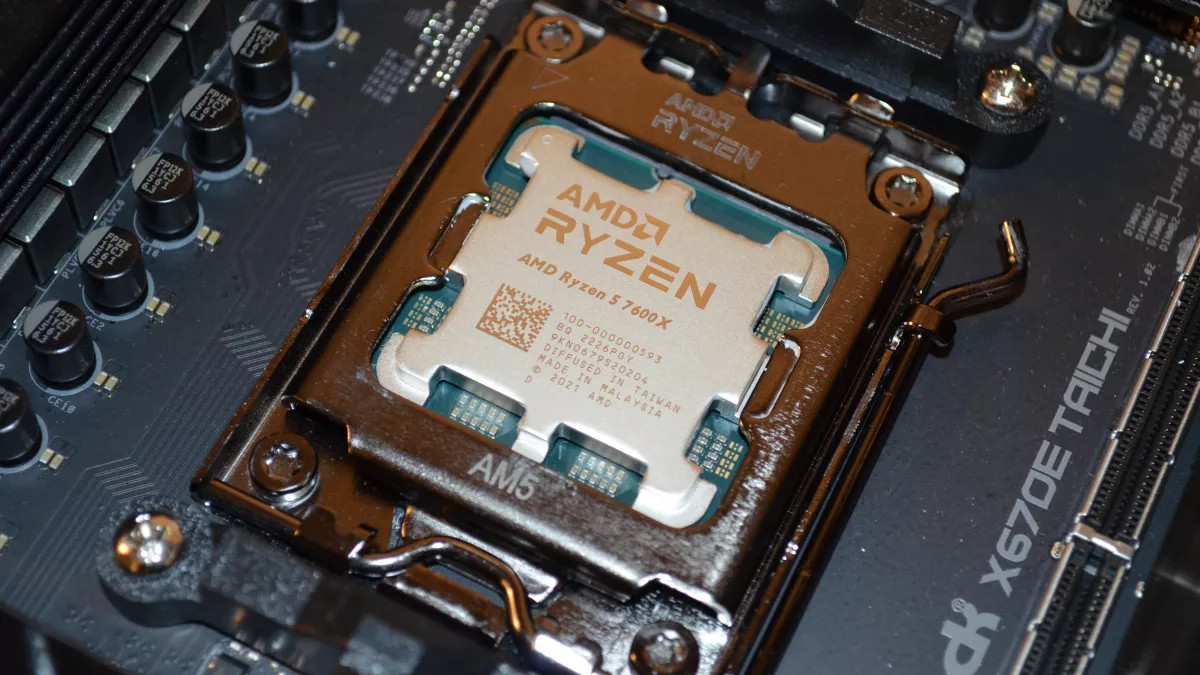
The most important factor in deciding between AMD and Intel is in the performance and neither company disappoints. Broadly speaking, Team Red and Team Blue have vastly different approaches when it comes to architecture.
As touched upon above, AMD now utilizes the AM5 socket and has done so since 2022, replacing the long-standing standard of AM4. It brings about the implementation of PCIe 5.0 for components such as your GPU, RAM, and SSD, alongside more advanced connectivity options.
In contrast, Intel has been using LGA 1700 since Alder Lake debuted in 2021, marking one of the longest reigns for a socket type for the company in recent history. It is soon to be replaced, but there are three full CPU generations (12th, 13th, and 14th Gen) which support this socket.
Whether Alder Lake or Raptor Lake, the processors use hybrid architecture, meaning a mixture of performance cores and efficiency cores, for a higher core and thread count than predecessors, to excel in both single-core and multi-core performance.
This design philosophy is flipped with Team Red which goes all in on the performance cores sticking to the traditional model of fewer cores and threads than its Intel rival. We've gone into detail in comparing many of AMD and Intel's chipsets head-to-head with dedicated pieces like the 14700K vs 7800X3D and 14900K vs 7950X, but the cliff notes are as follows.
In our testing, we found that Intel chipsets are generally faster at multi-core performance such as intensive video rendering and encoding, but AMD's chips were better for gaming, especially when opting for a variant sporting second-generation 3D V-cache stacked onto the L3 cache.
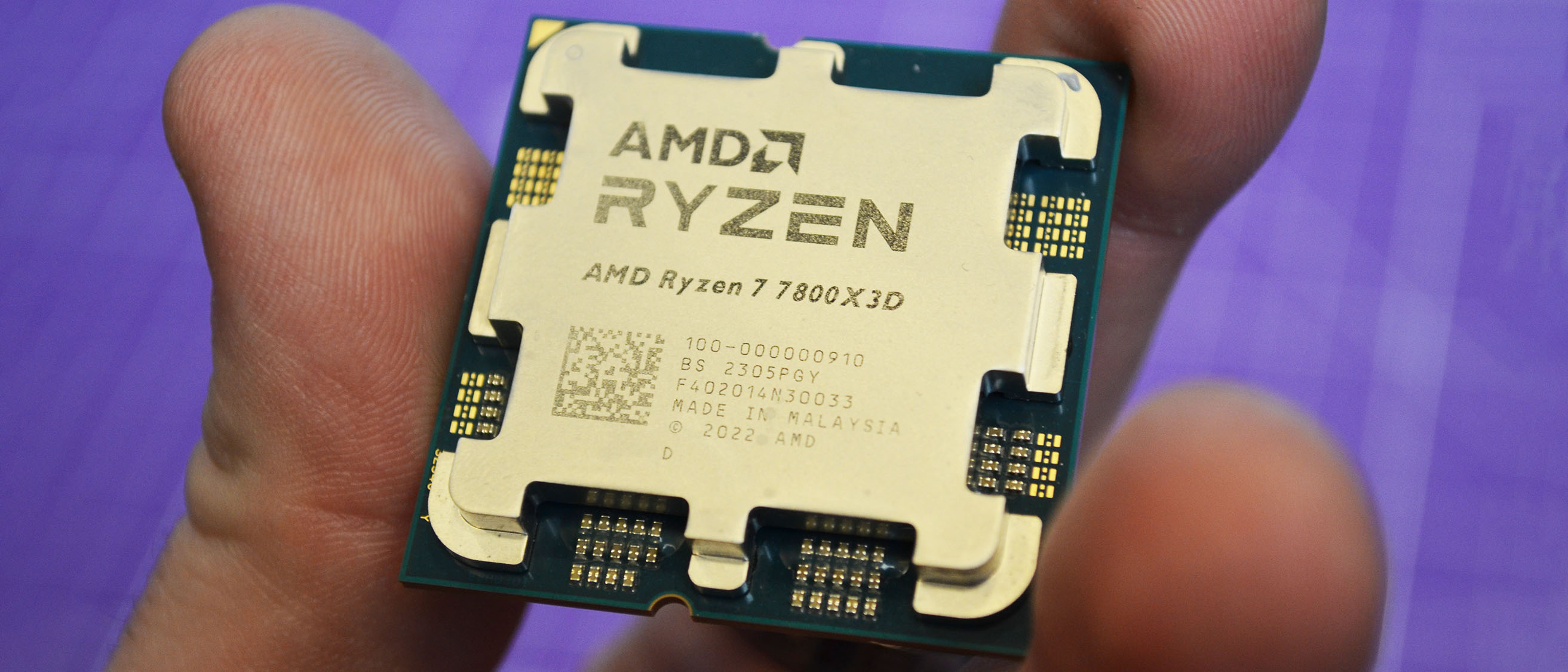
Certain CPU-bound games can shorten the gap, so it's never going to be so cut and dry between the processors. Sometimes titles are more optimized for Intel hardware, and other times they go all in with AMD, so it isn't an exact science.
What you will notice, however, is the thermal performance, as Intel chips can run much hotter than AMD's, peaking with temperatures as toasty as 105℃ under stress. Ryzen 7000 hardware is a little more power-efficient, especially with the 120W TDP of the 3D chips, but this comes at the cost of reduced productivity and creativity performance overall.
We can broadly compare each current-generation chip against each other to give you an overview. The AMD Ryzen 5 7600X has six cores and 12 threads whereas the Intel Core i5-14600K features a total of 14 cores (6P+8E) and 20 threads.
The former tops out with a boost clock speed of 5.3 GHz against 5.3 GHz for the latter's P-cores. Generally speaking, the Ryzen 5 chip outdoes Intel's in single-core synthetic benchmarks and gaming most of the time but loses out in multi-core areas.
Things are more dramatic in the mid-range with AMD Ryzen 7 7700X, an eight-core and 16 threads processor, stacking up against the Intel Core i7-14700K as a 20-core and 28-thread CPU for virtually the same price.
Team Blue takes the win in a landslide with vastly improved performance across the board with synthetics and gaming performance but is much newer than the competition.
Lastly, we come to how the Ryzen 7950X3D competes against the Intel Core i9-14900K. Team Red unleashes a gamer's processor with its 16-core and 32-thread makeup combined with an impressive boost clock of 5.7 GHz. Intel lays all its cards on the table with its Raptor Lake refresh chip's 24-core and 32-thread construction with a leading boost clock of up to 6 GHz.
Speaking broadly, Team Blue's frontrunner wins out in terms of single-core and multi-core benchmarks with leading creativity and productivity scores. However, the gap is closed with gaming performance, with the two chips going virtually blow for blow.
AMD vs Intel: future hardware
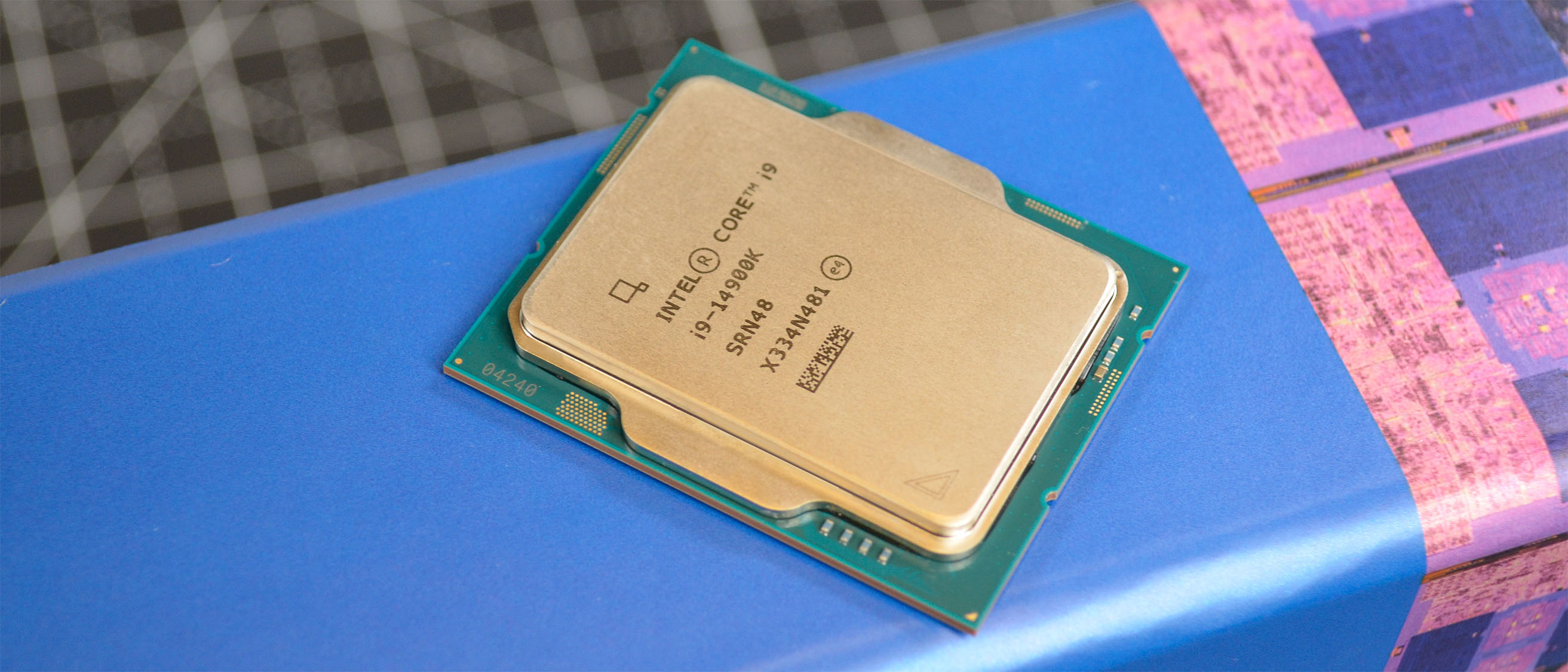
We're at the turning point for the battle of AMD vs Intel at this point in 2024. AMD is shortly releasing the Ryzen 9000 series which could regain some footing against Intel's Raptor Lake refresh from late last year, at least until Arrow Lake hits the scene and the scales once again shift.
It's a war that will never truly be wholly won, but one that will continue to evolve as the technologies improve and change, and there's a lot to look forward to in the future.
AMD's CPU core roadmap has seen an evolution from a 7nm process with Zen 2 to a 4nm process with Zen 5 soon to be upon us. There are plans in place for "Zen 5c" which would shrink things down to just 3nm for enhanced performance on smaller silicon, too.
Unfortunately, little is known about Zen 6 or the "Zen 6c" variant, but we could see as sleek as 2nm process hit the scene by 2026 or 2027. AMD has even begun working on Zen 7 hardware, but that is thoroughly under wraps now. The red corner has promised to support AM5 until 2027, a solid five years of the same socket, so the future seems iterative but promising.
Intel hasn't been shy about revealing its plans for the future either. While Arrow Lake has been firmly documented, there's also Panther Lake (Ultra Core 300) expected sometime in 2025. It all relates to how Team Blue does its node naming, from the Intel 7 10nm chips to the Intel 4 7nm manufacturing which powers Meteor Lake.
That will change again with Arrow Lake which is said to run on the Intel 20A process node. There are few details about the 18A node or which products are to come, but it is alleged this hardware will be a 2nm process and could be released as soon as 2026.

Formerly TechRadar Gaming's Hardware Editor, Aleksha McLoughlin is now a freelance writer and editor specializing in computing tech, video games, and E-commerce. As well as her many contributions to this site, you'll also find her work available on sister sites such as PC Gamer, GamesRadar, and Android Central. Additionally, more of her bylines can be found on Trusted Reviews, Dexerto, Expert Reviews, Techopedia, PC Guide, VideoGamer, and more.